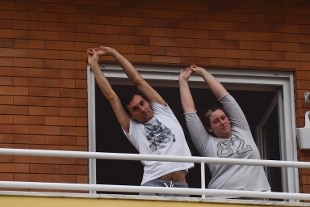Share
January 21, 2021 Year of lockdown, a year of physical activity in the four walls of the home.
In 2020, health and fitness applications grossed $ 22 million in Italy, 64.2% more than in 2019. It is one of the many side effects of the pandemic, which emerges from the SensorTower data.
Downloads were 57.8 million, 50.5% more than in 2019. Downloading an app does not give the certainty that Italians have really run, skipped and toned up.
But the fact that spending has increased more than downloads is (at least) a sign of commitment.
Also because the real gap between the increase in turnover and installations is wider than the percentages alone say.
The download count has in fact increased thanks to Immuni, included in the "health and fitness" category: it was the most downloaded app of the year, with 7.4 million downloads; it is free and has nothing to do with sports or diets.In second place there is the calorie counter and food diary Yazio, in third place Nike Training Club (which is therefore the most downloaded among the fitness apps).
The ranking changes if we look at the most profitable applications: the one that grossed the most in Italy (1.5 million dollars) was Sweat, followed by Strava and Yazio.
In the health and fitness category, the Italian market is the sixth in Europe in terms of both the number of downloads and revenues.
On a continental level, the jump was even greater: turnover grew by 70.2%, equal to 544.2 million dollars and installations by 46% (829.5 million).
The market was already growing, but the lockdown effect is clear: progress in 2019 had stopped at a remarkable 37.2%.
The peak of downloads (257 million) took place in the second quarter and the peak of receipts (148 million in the third), that is, in conjunction with the more restrictive measures.
However, it was not a flare-up: app spending was confirmed at 140 million between October and December and even in the second half of the year the installations remained over 180 million, that is 39% in more than in the same period of 2019. "Consumers have turned more than ever to smartphones", explain SensorTower analysts.
"The wave of new downloads shows how consumers wanted to stay healthy, both physically and mentally. The faster rise in spending shows how seriously they have taken the commitment."

